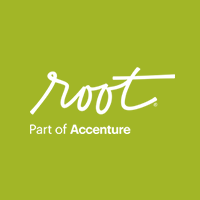When I tell people I went to business school and work as a consultant, I tend to get a slightly judgmental, “Ah, ok. So you like to tell people what to do?”
When I tell people that I studied cultural anthropology, the reaction is often an intrigued, “Huh. What did you end up doing with that?”
When I tell people I am interested in corporate sustainability, I often get the blank stare that accompanies so many business buzzwords.
At Root, we often talk about the “Bear” effect. Imagine someone saying the word “bear” out loud. What do you see? Although we may hear the same sound, we often interpret it in very different ways: a brown bear in the woods, a polar bear in the Arctic, a can of Behr paint, a bottle of Bayer Aspirin, bare feet on the beach…you get the idea. This same concept applies to when I tell people what I do, what I studied, or what I’m interested in.
Sustainability is a Buzzword
And while I’d love to clear up all confusion regarding my profession, studies and interests, for now, I’ll just focus on my passion for corporate sustainability. The word “sustainability” has become a catch-all, a buzzword, a staple of business speak. One of my favorite procrastination tools is this Business Buzzwords Generator on wsj.com. I just opened it up, and spent about 5 minutes generating random phrases. Here are just a few that included the words “sustainable” or “sustainability.”

I realize this is a silly online tool. But it hits a chord with me, and I want to take a moment to reflect. Look at the different ways that “sustainability” is used. These sentences are not that far off from how the word is used in business every day – in fact, I see similar instances in the sustainability reports, articles, and whitepapers I read. And I’m also often guilty of describing “sustainability” in cryptic sentences full of business speak and buzzwords (not too different from those generated in my 5 minutes of procrastination).
So what’s the problem?
The problem is that even among leadership teams that fully support sustainability as a core value or key strategic focus, we might actually be talking about different things. Are we talking about environmental risks to a global supply chain? Or are we talking about future financial stability in a shifting marketplace? Or maybe we are talking about human rights violations that plague your industry, or the volunteer hours that are part of your CSR program. Perhaps it’s all of the above.
Use Visualization instead of Buzzwords
This is where Root’s methodology comes in. We are all about helping groups of people get on the same page on a variety of topics through storytelling, visualization, and self-discovery. If you don’t believe these techniques can align people, think again. Visualization is a powerful business tool that can simplify and create shared meaning around complex ideas. In the business world, we rely on quantifiable metrics to make the business case. This is important. But before an organization gets into specific sustainability goals and metrics, it is important to start by discussing what “sustainability” really means and why it’s important to the business. Let’s try to lose the corporate jargon and use visuals and honest dialogue to truly align on the why, what, and how of sustainability within our organizations.
I’d love to hear how people in your organization interpret the words “corporate sustainability” and the successes or challenges you have experienced. Or, do you have something to say about the use of visualization? Send me a note at jkiepura@rootinc.com to share your experiences.






